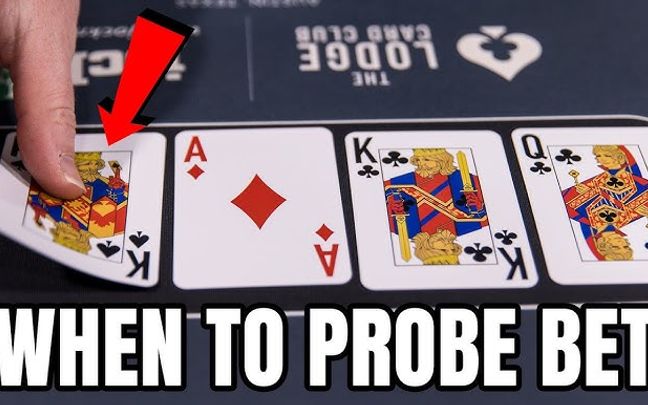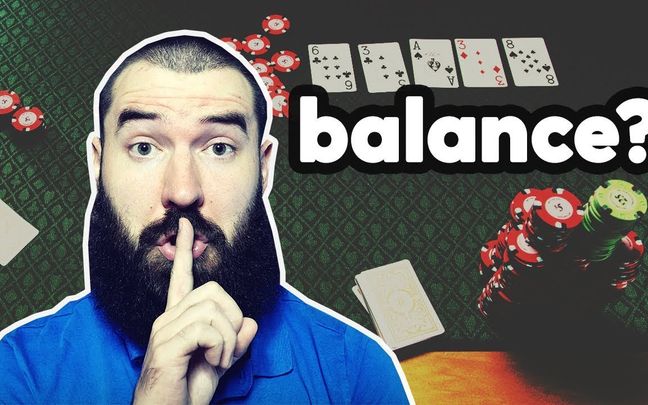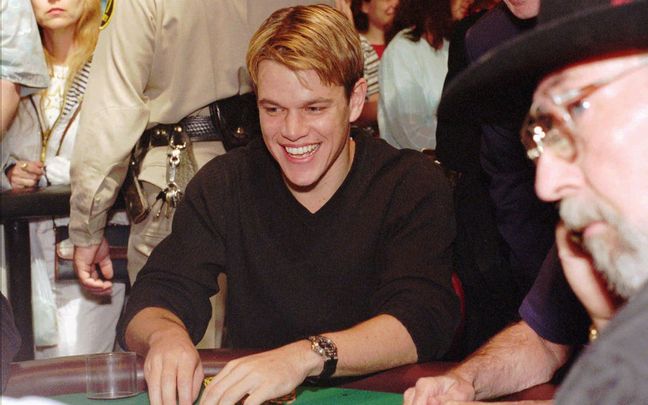Setting goals in poker is not just important but also an essential strategy for achieving sustainable success. Many poker players focus on improving their skills and tactics while overlooking the fact that specific and clear goals serve as a guiding light to maintain motivation in their journey to conquer the tables. Properly setting goals in poker not only helps you enhance personal skills and manage your bankroll effectively but also fosters a strong competitive spirit.
This article will delve into how to set reasonable goals when playing poker, including improving skills, managing bankrolls, maintaining patience, and evaluating personal performance. By doing so, you'll realize that setting goals in poker is not just about reaching a destination but also about the journey of becoming a better poker player every day.

Common Mistakes in Setting Goals for Poker
Setting goals in poker is crucial for improving skills and achieving success in the game. However, many players make common mistakes when setting their goals. Here are some common errors and detailed explanations for each:
Lack of Specificity
A vague goal like "wanting to win more money" doesn't provide clear guidance on how to achieve it. Specific goals, such as "aim to increase my bankroll by 10% each month," offer a clearer plan and strategy.
Unrealistic Goals
Setting goals that are too ambitious, such as "becoming a top poker player in the world within a year," can lead to frustration and loss of motivation. Goals should be aligned with your current abilities and experience.
No Detailed Plan
Many players set goals without creating a detailed roadmap to achieve them. A comprehensive plan, including specific steps and timelines, helps maintain motivation and focus.
Lack of Flexibility
Persisting with a goal regardless of circumstances without adjusting when faced with difficulties can lead to stress and failure. You need to be flexible and adjust your goals and plans as necessary.
Ignoring Short-Term Goals
Focusing only on long-term goals without setting smaller, achievable targets can lead to a loss of motivation. Short-term goals help maintain focus and provide a sense of regular achievement.
Not Reviewing Goals
Goals need to be periodically reviewed and adjusted to match the current situation. Failing to reassess goals can result in pursuing objectives that are no longer relevant or realistic.
Lack of Motivation
Setting goals without a strong passion or motivation can lead to laziness and giving up midway. Goals should stimulate internal motivation and inspire you.
Ignoring Learning Goals
Focusing solely on financial outcomes while neglecting skill improvement can limit long-term growth. Learning goals such as enhancing hand-reading skills, bankroll management, or developing new strategies are also crucial.
Comparing with Others
Setting goals based on others' successes rather than focusing on your own progress can create unnecessary pressure and lack of confidence. Goals should be based on your own abilities and conditions to appreciate personal progress.
Lack of Patience
Trying to achieve goals too quickly without patiently building skills and experience can lead to hasty decisions and mistakes. Poker is a game that requires patience and time to develop skills.
Setting goals in a scientific and reasonable manner will help you maintain motivation, improve skills, and achieve sustainable success.

Effective Goal Setting in Poker
To succeed in poker, setting clear and specific goals is crucial. Here are five important goals to help you develop skills and achieve success in the game.
Improve Playing Skills
One of the most important goals for poker success is enhancing your understanding of strategies and playing skills. This includes continuously learning and updating your poker knowledge. You should read books on poker, participate in online or offline courses, watch instructional videos from experts, and regularly analyze your past hands to gain insights. Learning how to read opponents' hands and mastering basic strategies is the first step, followed by developing more complex strategies to handle various types of players. This not only improves your skills but also boosts your confidence while playing.
Bankroll Management
Effective bankroll management is crucial to avoid risking all your poker money. This goal requires you to set a specific amount for poker and strictly adhere to bankroll management rules. Decide never to bet more than a specific percentage of your total bankroll in a single hand. For example, if you have $1,000 for poker, you should only bet a maximum of $50 per hand. This helps prevent losing all your money after a few losses. Additionally, bankroll management includes tracking your winnings and losses in detail and adjusting your financial strategy as needed.
Develop a Strong Mental Game
A strong mental game is key to maintaining composure in all situations. In poker, losing streaks can occur, and they can easily affect your morale. Therefore, your goal should be to learn how to control your emotions and maintain patience. Focus on the playing process rather than just short-term results. This includes not letting emotions influence your decisions, especially in stressful situations. Taking time to rest and relax is also important to avoid stress and fatigue, ensuring you’re in the best state of mind when playing.
Analyze and Evaluate Performance
To continuously improve your skills, you need to regularly evaluate your performance. This goal involves recording your played hands, using tracking software, and analyzing performance. Reviewing your decisions will help you understand your mistakes and strengths. From there, you can adjust your strategy to better suit your playing style and your opponents’. Regular evaluation also helps you detect trends in your play that might need adjustment to optimize your performance.
Set Specific Financial Goals
Finally, setting clear and specific financial goals is essential for tracking and achieving success in poker. Establish monthly and yearly profit goals based on your bankroll and current skills. Calculate the hours you need to play and the appropriate stakes to reach your financial targets. This requires detailed planning and adjusting your strategy as necessary to maximize profits. Monitoring your financial progress also helps you recognize when to change methods or adjust goals to align with reality.

In summary, setting goals in poker and diligently pursuing goals in poker will help you build a solid foundation and progress in the game. Not only does it improve your skills and strategies, but it also aids in effective bankroll management and maintaining a strong mental game.


























